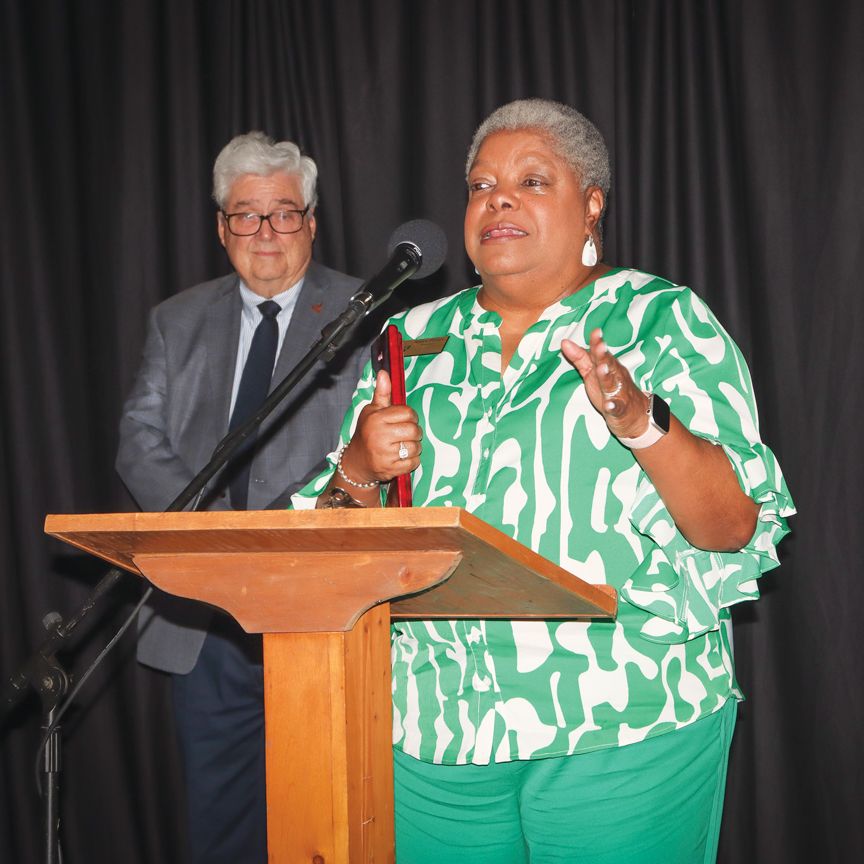Reps from TDEC, TVA and TDOT talk about the future of EVs
By Sabrina Bates
MVP Regional News Editor
sabrina@magicvalleypublishing.com

The announcement of one of the largest financial investments by Ford Motor Co. in the state has sparked a series of conversations across Tennessee as leaders are looking at the role they will play in the future of electrification.
Ground was broken on BlueOval City in September 2022. The location is expected to bring nearly 6,000 jobs to West Tennessee, both in the production of an all-electric truck by Ford and a battery plant with recycling capabilities. With that announcement, members of the Tennessee Department of Environment and Conservation (TDEC), Tennessee Valley Authority (TVA) and the Tennessee Department of Transportation (TDOT) are working simultaneously to provide education on electric vehicles (EVs) and infrastructure. Recently, those representatives hosted a virtual discussion to talk about the future of electrification in Tennessee.
Alexa Voytek with TDEC’s Office of Energy Programs highlighted Drive Electric Tennessee, a program with a goal to see 200,000 EVs on the road by 2028. Voytek said the program kicked off in 2018 and Tennessee reported nearly 22,000 EVs registered in the state in September. That number grew from 20,309 reported at the end of July.
Voytex explained vehicle registration data is collected and reported by https://www.atlasevhub.com/. The website offers global data and breakdowns by county are offered for Tennessee. According to the Atlas EV Hub, Chester County residents saw more than a dozen of those EV registrations in 2022 from the beginning of the year through June 30.
She further explained in 2019 the state looked at infrastructure needs and conducted an assessment where they learned that with the high cost of construction projects for EV-charging stations, they didn’t see the private sector “filling gaps.” As a result of the needs assessment, the Fast Charge TN Network was developed between TVA and TDEC. TVA is building out a project that would place EV-charging stations every 50 miles within its six-state coverage area. At-risk and economically-distressed counties in Tennessee are high priority regions, as well as all of Tennessee’s State Parks.
The first fast-charging EV station as a result of this partnership opened in September 2022 downtown in Martin, which is in Weakley County in northwest Tennessee.
TVA rep Drew Frye spoke about future plans and TVA’s role to help “electrify” America. Frye said TVA helps offset the cost of charging stations by allotting up to 80-percent reimbursement for power companies. The Fast Charge station in Martin was a project between the City of Martin and the Weakley County Municipal Electric System, which is the county’s power service provider.
Frye explained the differences between Level 1, Level 2 and Fast Charge Network stations. Level 1 chargers are 110-volt outlets, typically found in the home. EV owners can charge their vehicles at their home, but some won’t provide a full charge overnight, depending on the battery levels at the time of charging.
Level 2 chargers are 240 volts, the same used for dryers and stoves in the home, and can be hardwired into a home by an electrician. Frye said they are typically found outside of hotels and malls and can add 200 miles from an overnight charge. Communities wanting to invest in Level 2 charging stations can expect to spend around $10,000 on a project. Tennessee State Parks will offer Level 2 chargers.
Fast-charging stations can provide a full charge in about 30 minutes to an hour. Some EVs can travel up to 300 miles on a full charge. Frye said cost estimates are close to or equivalent to gasoline costs for those who pay at charging stations and less than $1 per gallon for those who charge their EV at home.
TDOT representative Matt Meservy talked about statewide infrastructure priorities. Tennessee is expected to receive a little more than $88 million in federal funding through Fiscal Year 2026. The federal government has allocated $4 billion in funding for EV projects across the United States. Phase 1 for Tennessee involves EV charging stations along US Hwy. 64 from Memphis to outside of Chattanooga. By the end of 2022, TDOT expects to finalize procurement and determine who to contract for installation and maintenance. That procurement is expected to be awarded by the end of June 2023.
A second priority area involves I-40 from Jackson to Nashville. Meservy said the goal of the projects is to see at least 40 percent of the benefits of investments overflow into disadvantaged communities in Tennessee.
Meservy said another aspect of these projects is to ensure there is available training for electricians interested in installing chargers.
Voytek shared some incentives for communities and EV owners. She said there is some funding assistance available through TDEC and its settlement with Volkswagen for communities looking to install Level 2 charging stations as well as incentives to help counties and cities “electrify their own government fleets.”
There are tax credits available for the installation of charging stations and power companies offer incentives. Voytek said General Motors offered its dealerships up to 10 chargers for community partnerships and there were several dealerships that are taking advantage of the incentive.
As for safety concerns with EV fires, the Tennessee Firefighters Association is working with the National Fire Prevention Association for a series of personnel training in relation to all alternative fuels.
For more information about community resources and EV incentives, visit https://www .driveelectrictn.org/.More information about Tennessee and TVA’s partnership can be found at https:// energyright. com/ ev/fast-charger-program/ tn/.




